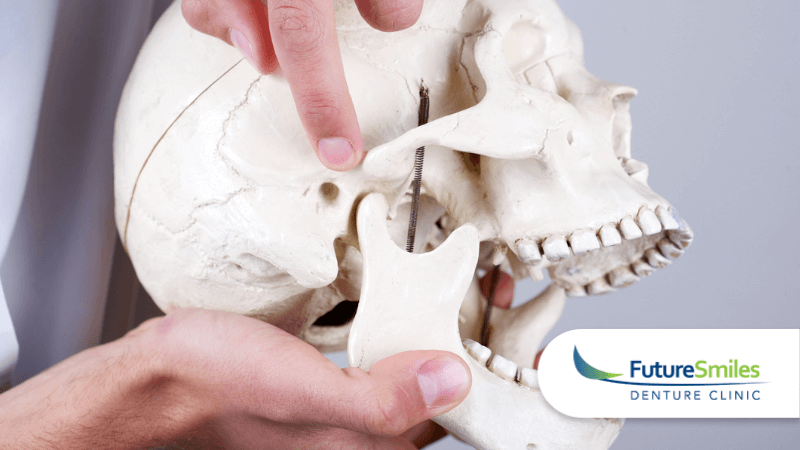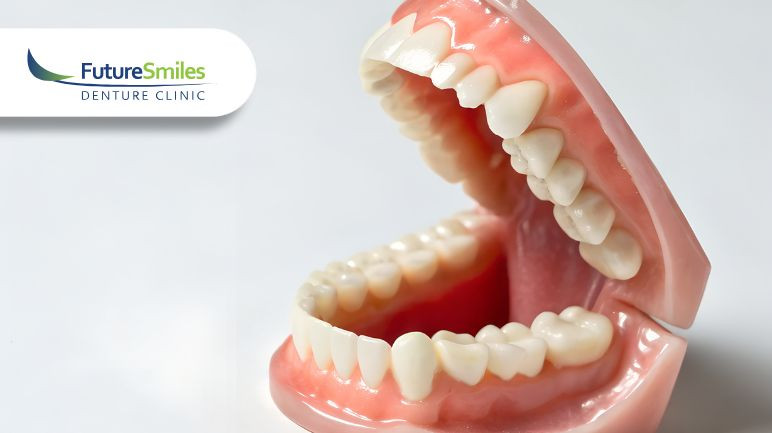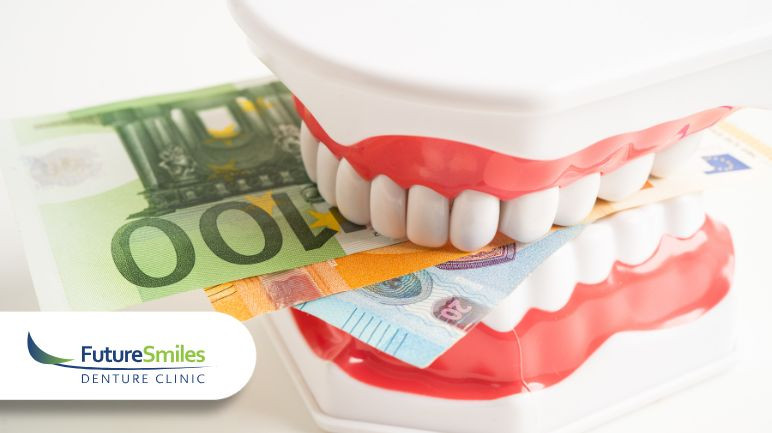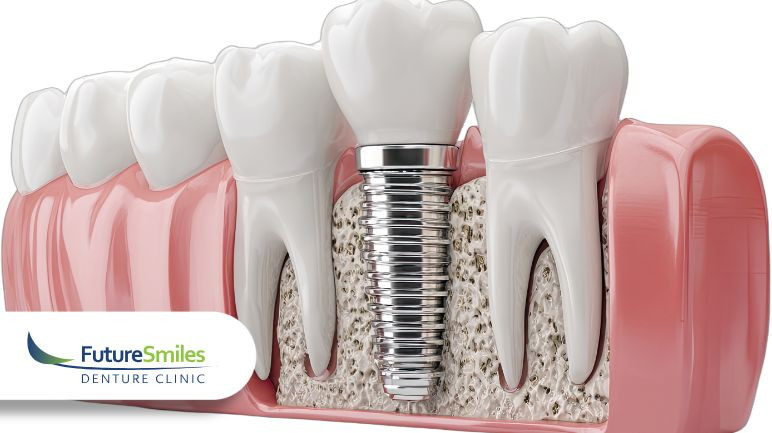Keep Your Jawbone Healthy
Healthy Eating
Nutrition is one way to keep bones strong. There are several vitamins, minerals, and nutrients found in a variety of foods that help with bone health. While many people think of milk as a superfood for bone health, there are many foods that keep bones strong. Calcium is great for your bones, you can also get this mineral from dark, leafy greens such as bok choy, kale, or collard greens, as well as through dairy products. Vitamin D is also good for bone health and it can be found in salmon, sardines, beef liver, and egg yolks. Magnesium and potassium, both found in sweet potatoes and figs, can help neutralize acids in your body that can leach calcium out of your bones. Vitamin C is important to prevent bone loss, so try adding some citrus fruits to your diet. Eating a variety of healthy foods will increase your bone health, and your overall health, and help fight jawbone loss. If some foods are difficult to eat because of improper fitting dentures, consider making smoothies or soups to pack in all of the nutrients you need. Both of these options make foods softer and easier to eat without losing nutrients.
Give Your Mouth A Rest
Make sure you take your dentures out at night and for a few hours every day. While this may not always be possible, like when you are out of the home for extended periods, it is a good habit to get into. Taking your dentures out will remove pressure on the jaw and slow the progression of jawbone loss. It is also good for your gum health since it gives the gums a moment to breathe and helps slow bacteria growth.
Denture Implants
One way to help preserve your jawbone is to get denture implants instead of complete dentures. Because denture implants are anchored into the jawbone, they simulate the natural root of the tooth and can offer the jawbone the stimulus it needs. Denture implants are a permanent denture solution that essentially function like natural teeth since the wearer doesn’t have to take them out and can eat, speak, and care for them like regular teeth while they help to maintain jawbone shape, structure, and strength.
Proper Fit
When jawbone resorption occurs and the jawbone becomes smaller over time, your dentures will gradually lose their fit since the jaw they rest on has changed shape. To ensure a proper fit, you will need to get your dentures either relined or rebased every few years to compensate for jawbone resorption. Having your dentures regularly fitted will ensure that they remain comfortable.
Denture Solutions In Calgary
If you’re worried about jawbone loss, discuss your options with a Calgary denturist from Future Smiles Denture Clinic. Our professional and knowledgeable staff will discuss your denture options and assess if you are a good candidate for denture implants or for complete dentures. Together, you and your denturist will be able to work out a plan to fight jawbone resorption and creating the healthiest smile possible. To speak with the staff at Future Smiles in Calgary, you can visit the SW Calgary Denture clinic on Macleod or the NE Calgary location in Coral Springs. To book a free consultation with Future Smiles Denture Clinic, either call 1-403-908-9926 or fill out the online contact form.
FAQ
Q: I’m looking for affordable denture solutions. What options do I have?
A: At Future Smiles Dentures Clinic, we know that Calgarians are looking for low-cost, stress-free denture payment plans. This is why we offer affordable denture solutions, including direct billing and financing.
Q: Do denture implants really feel like natural teeth?
A: Because your Calgary Denturist will place the implant directly into your jawbone, implant-supported dentures are as close to your natural teeth as possible. As they heal, your bone and tissue will fuse to the implant causing your new teeth replacements to look and feel strong, stable, and just like your own natural teeth.
Q: How do I know if my complete dentures fit right?
A: The easiest way to know if your complete dentures fit properly is to have the fit assessed by your denturist. A general rule of thumb for complete dentures is that the top one should suction smoothly to your gums while the bottom one should stay securely in your mouth. Your dentures should not cause sore spots in your mouth and they should not move around when you eat or speak.







